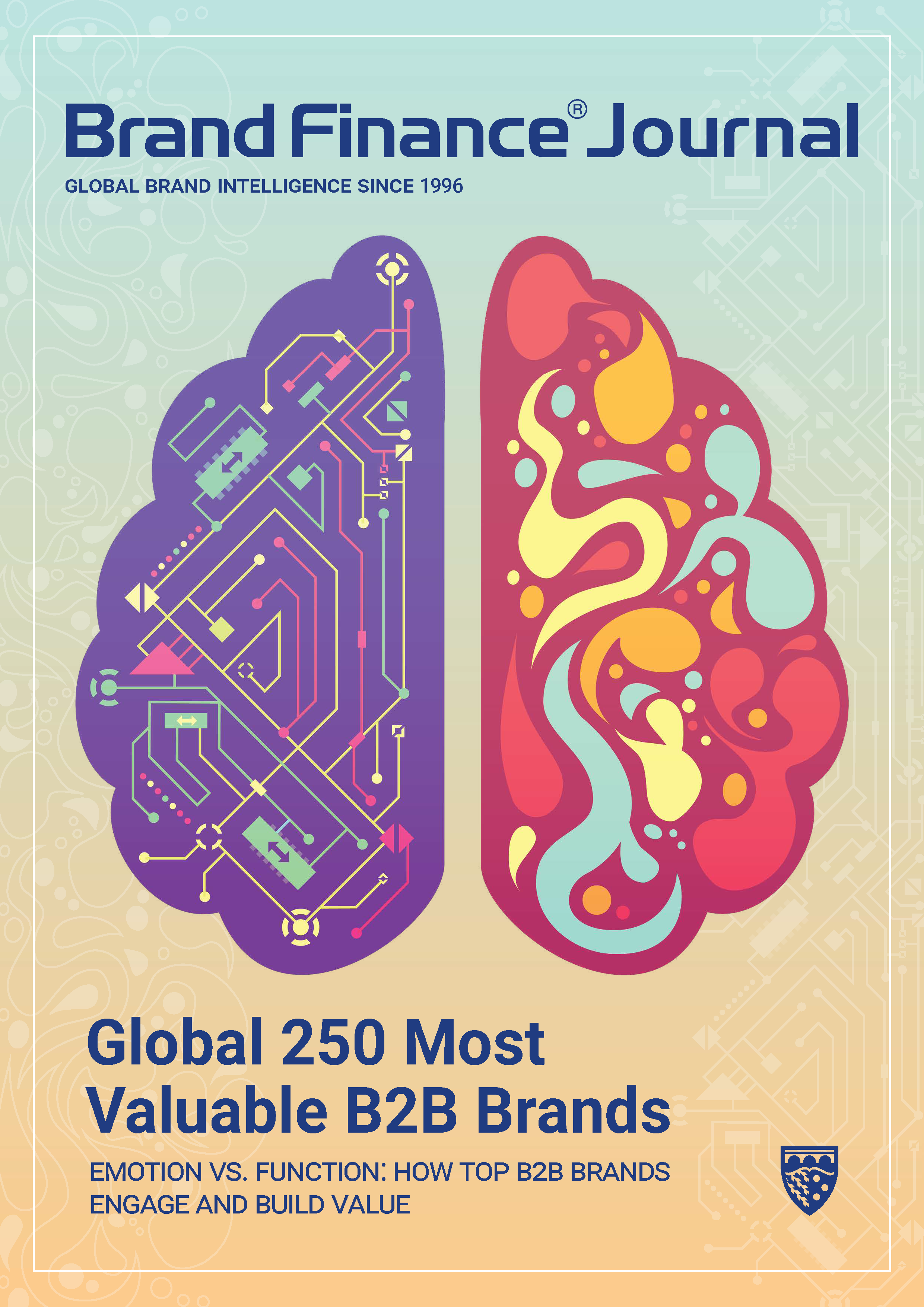This article was originally published in the Brand Finance Global Most Valuable B2B Brands Index 2025

Sports Services Senior Consultant,
Brand Finance
Sponsorship is increasingly acknowledged as an effective tool for B2B brand marketers to achieve their goals, though these objectives tend to be more nuanced compared to B2C brands who primarily target customers. Return on investment depends on the stakeholders targeted, whether to drive awareness or cultivate specific brand associations, and the chosen activation channels, such as paid media, owned platforms, or hospitality initiatives.
Marathons have recently become an area of focus for Brand Finance, as they intersect some of our core measurement categories of commercial branding, place branding and sports branding. Marathon sponsorships provide a unique combination of B2B and B2C value, engaging diverse demographics, strengthening brand credibility, and extending influence far beyond race day.
Brand Finance's research reveals that marathon sponsorship can be a particularly valuable platform for B2B brands, based on data demonstrating that B2B sponsors benefit from increased consideration and gain exposure to a marathon runner demographic, which includes a high concentration of decision-makers. Launched in April 2025, the Brand Finance Marathons 50 2025 report, the first global ranking of the world’s 50 strongest marathon brands, offers a data-driven perspective on how marathons create economic and charitable impact while offering brand-building potential for sponsors.
For brands, marathon sponsorship provides a rate, layered platform for engagement, combining elite sport, mass participation, and deep community integration. Unlike many other sponsorship models, marathons allow brands to become part of a city’s cultural fabric, creating lasting visibility and influence.
For B2C brands like Nike and New Balance, this means integrating products directly into the race experience, outfitting participants, and reinforcing lifestyle associations. Meanwhile, B2B brands such as Tata Consultancy Services (TCS) have capitalised on marathon sponsorship through naming rights and technical partnerships, including race app development. By reaching a demographic rich with decision-makers and business leaders, these sponsorships have proven effective for brands aiming to build lasting relationships and drive strategic growth.
Leaders of the pack: The link between marathon participation and executive roles
Brand Finance data on marathon participants indicates a relatively high proportion of senior professionals such as C-suite executives, directors, and managers, a demographic that creates a valuable opportunity for B2B sponsors.
Senior business leaders are over indexed among marathon runners. 14% of marathon runners occupy C-suite executive positions, compared to 11% of general runners. This trend continues among board members and senior vice presidents/vice presidents, where marathon runners outnumber their general counterparts 3% to 2%.
The most common role for all runners is managerial, with 33% of marathon runners occupying a managerial role compared to 28% of general runners. This higher proportion of marathon runners in managerial positions reflects the personal qualities honed through marathon training, such as time management, discipline, and motivation. These skills also align well with effective leadership.
On the other end of the professional spectrum, fewer marathon runners are entry-level professionals – just 6%, compared to 11% of all runners. People at the start of their careers often face challenges making marathon participation less feasible, such as financial constraints, time limitations, and competing priorities. This gap presents an opportunity for organisers to engage entry-level professionals through targeted initiatives and incentives, encouraging them to join the ranks of future marathon runners and leaders.
The effect of partnership activations
When evaluating sponsorships, the primary focus should extend beyond short-term gains to fostering brand recognition and long-term growth. Tata Consultancy Services (TCS) and its marathon sponsorships have significantly enhanced the company’s brand familiarity, particularly among runners. Despite being a B2B brand with lower overall familiarity, TCS has experienced the highest uplift in recognition compared to other marathon sponsors. According to Brand Finance’s research, TCS has a familiarity of 46% amongst marathon runners versus 16% amongst non-marathon runners (Figure 1).

This could be an opportunity for brands to showcase their abilities, such as TCS leveraging its app development rights to show its technological expertise, strategically engaging IT decision-makers who over-index in its audience.
The exposure is not limited to participants, as only 20% of the study participants watched a marathon just because their friends or family have taken part of it. While the global exposure of some events, like Formula 1, is higher than marathons due to broadcast coverage, marathons are some of the largest mass participation events compared to traditional sporting events.
This high level of participation can create new engagement channels for sponsors to reach, connect, and interact with these participants, rather than the traditional branding and exposure assets that brands unlock in other sports sponsorships.
The benefits of marathon sponsorships extend beyond brand awareness to influencing consumer consideration. According to Brand Finance’s study, TCS and Standard Chartered experienced the highest surge in consideration among marathon runners. TCS, in particular, saw consideration increase from 27% amongst non-runners to 67% amongst marathon runners, highlighting the strong impact of its association with the running community (Figure 2).

While brands like Nike and New Balance, which are already well-established in the sports world, naturally show smaller uplifts due to their existing reputation, TCS benefits significantly from this sponsorship strategy. Interestingly, non-endemic sponsors, those outside the sports industry, tend to see a greater uplift from their sponsorships compared to endemic brands, which already have strong associations with athletics.
Sponsoring a marathon is a marketing strategy as well as an investment in how people see a brand. These events are strongly associated with passion, hard work, and a sense of community, making them an ideal way for brands to align themselves with these characteristics as well as connect emotionally with people. Sponsors also engage in creative activations like sustainability initiatives and interactive race-day experiences that enhance fan participation.
Whether it’s through sustainability efforts, new technologies, or simply backing the runners, there is a clear uplift in perception scores amongst “Marathon Runners” and “Non-Runners” on the positive impact marathons deliver (Figure 3). Alignment between sponsor and event on brand mission and attributes is a key requirement for the success of the investment.

Sponsorship remains a powerful strategic tool for shaping stakeholder perceptions and influencing behaviours, often delivering more targeted and impactful results than traditional marketing methods.
The Brand Finance Marathons 50 2025 report highlights how marathons not only drive economic and charitable impact but also create lasting brand visibility and influence, making them especially valuable for B2B brands.
Marathon sponsorship enables brands to tap into defined audiences by aligning with the credibility, values, and reach of the rights-holder. For brands aiming to connect with key decision-makers and solidify industry positioning, marathon sponsorship represents an underleveraged yet highly effective channel for long-term brand equity and business influence.

